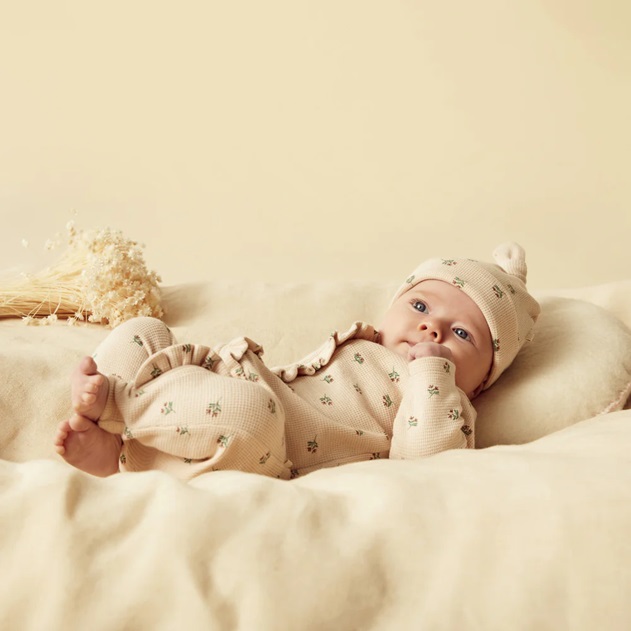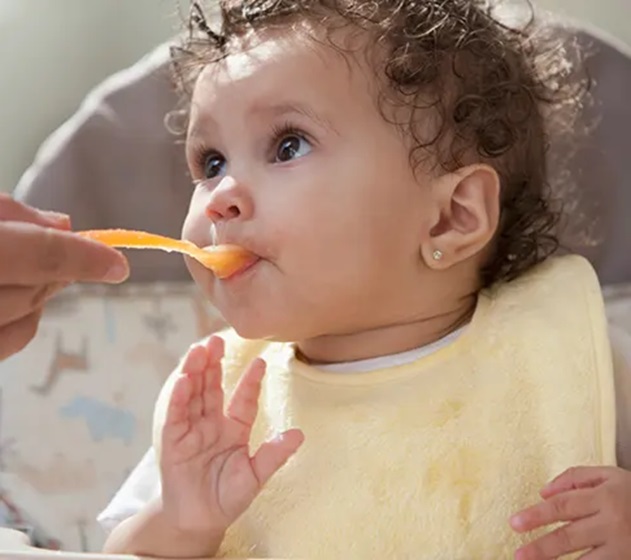From Clothing and Food to Skincare: Why Organic is Always Better for Babies
As parents, we all strive to provide the best for our children. A big part of ensuring that they are safe, comfortable, and thriving is paying attention to the products we’re choosing, the main focus being organic. Being mindful about what we put in and on our kids’ bodies can make a vast difference for their long-term wellbeing. Although we can’t limit all of our children’s exposures to toxins in the environment, we do have a say in the clothes they wear, the food they eat, and the skincare they use.
Organic Clothing

It’s safe to say that of all the things we surround our kids with, the most extended and intimate contact comes from clothing. Conventional baby clothes have often been treated with industrial chemicals that may be harmful, even when you read 100% cotton on the label. These have the potential for serious health issues down the line.
Organic baby clothing, on the other hand, is made from clean, toxin-free fabrics grown and processed using organic methods. These are free from harmful pesticides, herbicides, and other chemicals commonly used in conventional clothing production. Also, organic clothing is generally made from natural materials like cotton, bamboo, and wool.
Apart from being natural and organic, these quality clothes for girls and boys are soft, breathable, and hypoallergenic. Infants and toddlers have delicate and sensitive skin, which is easily irritated by the chemicals used in conventional clothing production. Since their skin is thinner and more permeable, they can absorb much more from the environment than us adults.
By choosing organic baby boy and girls clothes, you can reduce your little one’s exposure to these chemicals and help prevent skin irritations and other health problems. When shopping for organic clothes for girls and boys, you’ll notice adorable pieces in neutral and pastel colours, ranging from essential overalls and bodysuits to timelessly beautiful knitwear. However, there are a few things to consider.
You want to opt for garments that are certified organic by a reputable organisation, such as the Global Organic Textile Standard (GOTS). This organisation regulates organic fabrics worldwide, ensuring that the clothing has been produced using strict organic standards and meets certain environmental and social criteria. GOTS-certified baby clothing can give consumers peace of mind that they are using genuinely organic products.
Organic Food

Let’s face it, because of the persistence of pesticides in the environment, no food is 100% residue-free. However, organic baby food has significantly lower pesticide residues than conventional food. Children are more likely to be affected by pesticide residue than adults since their immune systems are still maturing.
Also, compared to adults, kids typically consume far more of some foods like apples and bananas. Certain fruits and vegetables are more pesticide-prone than others. Eating the potentially sprayed skin of an apple carries a greater danger than peeling and eating a banana. You can peel an apple, of course, but a lot of the nutrition is lost.
Organically produced fruits, vegetables, meat, and dairy are generally free from antibiotics, colours, hormones, and preservatives. By eating organic food, your children are on their way to a healthier functioning body. Eating organic meat and dairy is also the best way to ensure that little ones are not exposed to endocrine-disrupting chemicals (EDCs) that mimic, block, or interfere with hormones in the body.
Since hormones control almost every developmental function in our bodies, interfering with these processes can be dangerous. Problems with growth, reproduction, obesity, brain function, immunity to disease, and a host of other issues can result from EDC interference. On the other hand, by choosing organic meat and dairy, your kids won’t eat meat that was given daily antibiotic doses to accelerate growth, which in turn results in the spread of harmful antibiotic-resistant germs.
Organic Skincare

As already mentioned, a baby’s skin is more delicate and sensitive than an adult’s so it can easily be irritated by external aggressors and needs extra special care and protection. Conventional baby skincare often contains harsh chemicals and synthetic additives like petroleum-based compounds, phthalates, oxybenzone, and parabens that can trigger skin reactions.
One of the major advantages of using organic skincare for your baby’s delicate skin is that it reduces the chance of irritation. Natural cosmetics are free from synthetic scents, parabens, and artificial dyes. This can help to reduce allergic responses, redness, and inflammation associated with sensitive skin. In general, organic and natural skincare for babies is made with natural, plant-based ingredients that are grown without the use of synthetic pesticides, fertilizers, or genetically modified organisms (GMOs).
These substances can soothe and moisturise their sensitive and delicate skin by acting as natural emollients and decreasing dryness and flakiness. With all this being said, you should always prioritise selecting organic baby personal care products with just a few natural ingredients that allow you to nourish your little one’s skin in a clean, safe, yet effective way.



